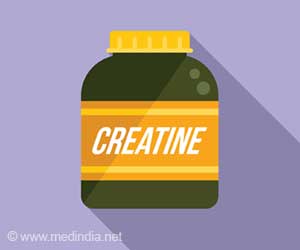Discover how early puberty in first-born daughters is linked to high prenatal stress levels in mothers, with significant implications for family dynamics and healthcare.
- Stress during pregnancy is linked to early onset of puberty in first-born daughters
- Maternal prenatal distress accelerated adrenal maturation by increasing dehydroepiandrosterone sulfate (DHEA-S) levels in girls
- Need for targeted healthcare strategies to support pregnant women's mental health and mitigate the long-term impact of stress on offspring
Mothers’ prenatal distress accelerates adrenal pubertal development in daughters
Go to source).
Prenatal Stress and Its Impact on First-Born Daughter’s Puberty
The study, a collaborative effort involving researchers from UCLA, UC Irvine, UC Merced, Chapman University, and the University of Denver, embarked on a 15-year longitudinal journey to explore the impacts of prenatal stress on child development.Participants for the study were recruited from two obstetric clinics in Southern California, with the selection criteria ensuring a diverse and representative sample of women undergoing their first trimester of prenatal care. The study meticulously measured the mothers' levels of stress, depression, and anxiety throughout their pregnancy and postpartum period, creating a comprehensive prenatal psychological distress composite score.
Additionally, the children's signs of puberty were evaluated at various developmental stages, alongside assessments of childhood adversity to account for other factors known to influence early puberty.
Did You Know?
Worldwide about 10% of pregnant women and 13% of women who have just given birth experience a mental disorder, primarily depression. In developing countries, this is even higher, i.e. 15.6% during pregnancy and 19.8% after childbirth.
Unlike previous studies, the study did not find similar patterns of early maturation in boys or in daughters who were not the first-born, highlighting a specific parent-offspring dynamic that warrants closer examination.
Evolutionary Perspectives and the "Eldest Daughter Syndrome
Anthropologist Molly Fox, who led the study, suggests that these findings could be interpreted through an evolutionary lens. The theory posits that the accelerated maturation of a first-born daughter, in the absence of early menstruation, equips her to assist in the upbringing of younger siblings. This phenomenon could serve a dual purpose: ensuring the well-being of subsequent offspring and delaying the daughter's entry into motherhood, thus optimizing family resources and care.The research also sheds light on the socio-cultural concept of the "eldest daughter syndrome," a term that encapsulates the expectation for first-born daughters to undertake significant childcare and domestic responsibilities, often at the cost of their personal development and well-being. This phenomenon, widely discussed in online forums, reflects societal norms and expectations that place a disproportionate burden of family care on the shoulders of young girls, particularly the eldest.
Read More to Know About ‘Too Much Stress during Pregnancy May Affect Your Baby's Muscles’
Implications for Health and Society
The findings of this study not only contribute to our understanding of fetal programming and the long-term effects of prenatal stress but also underscore the importance of supporting the mental and physical health of pregnant women. By highlighting the specific impact on first-born daughters, the research calls for targeted interventions and policies that address prenatal health and its broader implications on family dynamics and child development.In conclusion, prenatal stress influences the onset of puberty in first-born daughters, offering valuable insights for healthcare providers, policymakers, and families. It emphasizes the need for comprehensive care strategies that consider the emotional and environmental factors impacting pregnant women, ultimately aiming to improve the health and well-being of both mothers and their children.
Reference:
- Mothers’ prenatal distress accelerates adrenal pubertal development in daughters - (https://www.sciencedirect.com/science/article/pii/S0306453023006492?)
Source-Medindia
















